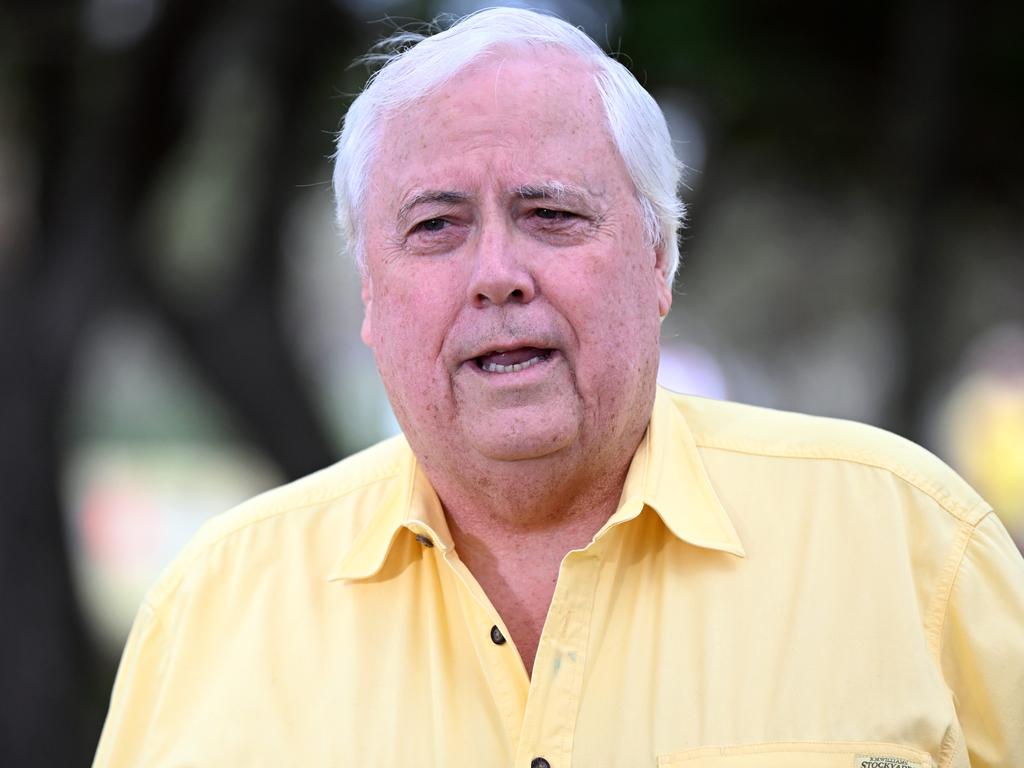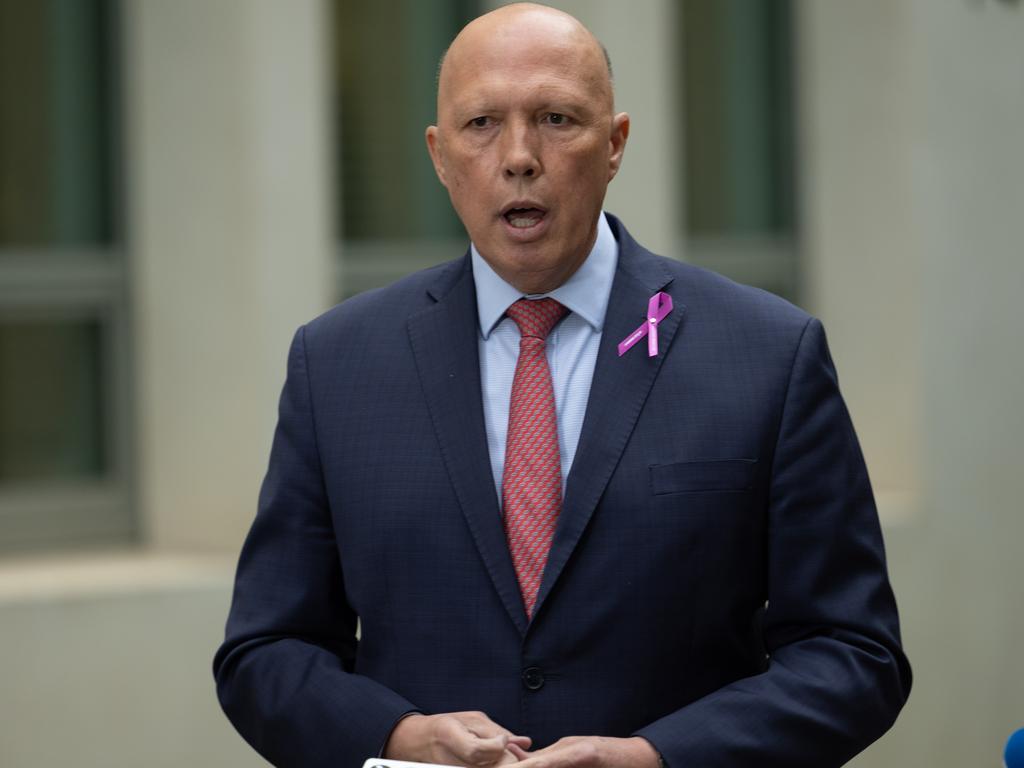Clive Palmer’s mining plans defeated in Australian-first decision
A controversial project driven by mining magnate Clive Palmer has failed to gain the approval of the federal environment minister.
Mining magnate Clive Palmer’s controversial central Queensland coal project has been killed off in an Australian first.
Environment Minister Tanya Plibersek has rejected Mr Palmer’s proposal for an open-cut mining project near Rockhampton under the nation’s environmental laws.
It is the first time a coal mine has been refused under the Environment Protection and Biodiversity Conservation (EPBC) Act since it was introduced in 1999.
Ms Plibersek announced on Wednesday she had decided, after six months of consultation, not to approve Mr Palmer’s project.
“I’ve decided that the adverse environmental impacts are simply too great,” she said in a video posted on Twitter.
“The mine is an open-cut coal mine less than 10km from the Great Barrier Reef and the risk of pollution and irreversible damage to the reef is very real.”

Ms Plibersek said the project would also have had an “unacceptable” impact on fresh water in the area and would have posed a risk to the shallow ocean habitats of native fish and dugongs.
She made the call after receiving about 9000 responses to her invitation in August last year for public comment on her draft decision to block the mine.
The overwhelming majority of respondents – 98 per cent – supported rejecting the mine, she said.
“After a thorough assessment of all of the information before me, I’ve decided to stick with my decision and I won’t be approving the central Queensland coal project,” Ms Plibersek said on Wednesday.
Ms Plibersek’s decision to axe Mr Palmer’s mining project comes amid debate over Labor’s next big plans for environmental reforms.
In a key plank of its climate policy, Labor wants to revamp the existing “safeguard mechanism” to require heavy emitters to reduce their greenhouse gas emissions by nearly five per cent a year.
Under the proposed update to the Coalition-era cap and trade scheme, the country’s big polluters will still be allowed to use unlimited carbon credits to “offset” their emissions.
Peter Dutton has ruled out supporting the legislation and on Wednesday claimed it would amount to a tax.
Asked if he expected the Liberals to toe the party line on the safeguard mechanism, the Opposition Leader said: “Yes, our position has been clear – this is a tax imposed”.
“It’s going to drive up the cost of living.”

With the Coalition opposing the measure, Labor will need the support of The Greens – who have a mandate to oppose new fossil fuel projects – in the Senate in order to pass the relevant legislation.
The Greens have said they will not support the safeguard mechanism being used by new gas and coal projects. They are expected to call for tougher rules for emitters in return for their support.
Labor now has to rely on the Coalition or The Greens and two crossbenchers to pass legislation through the upper house, after Lidia Thorpe defected from The Greens to sit on the crossbench.
The Albanese government could also face a challenge from The Greens over the EPBC Act, which Labor plans to overhaul in response to an independent review which found the current law was not fit for purpose.
The Greens have proposed their own amendment to the EPBC Act to install a so-called climate trigger in the legislation.
The climate trigger would require the relevant government minister to factor in future climate impacts, including in terms of emissions, when weighing up new fossil fuel projects.



